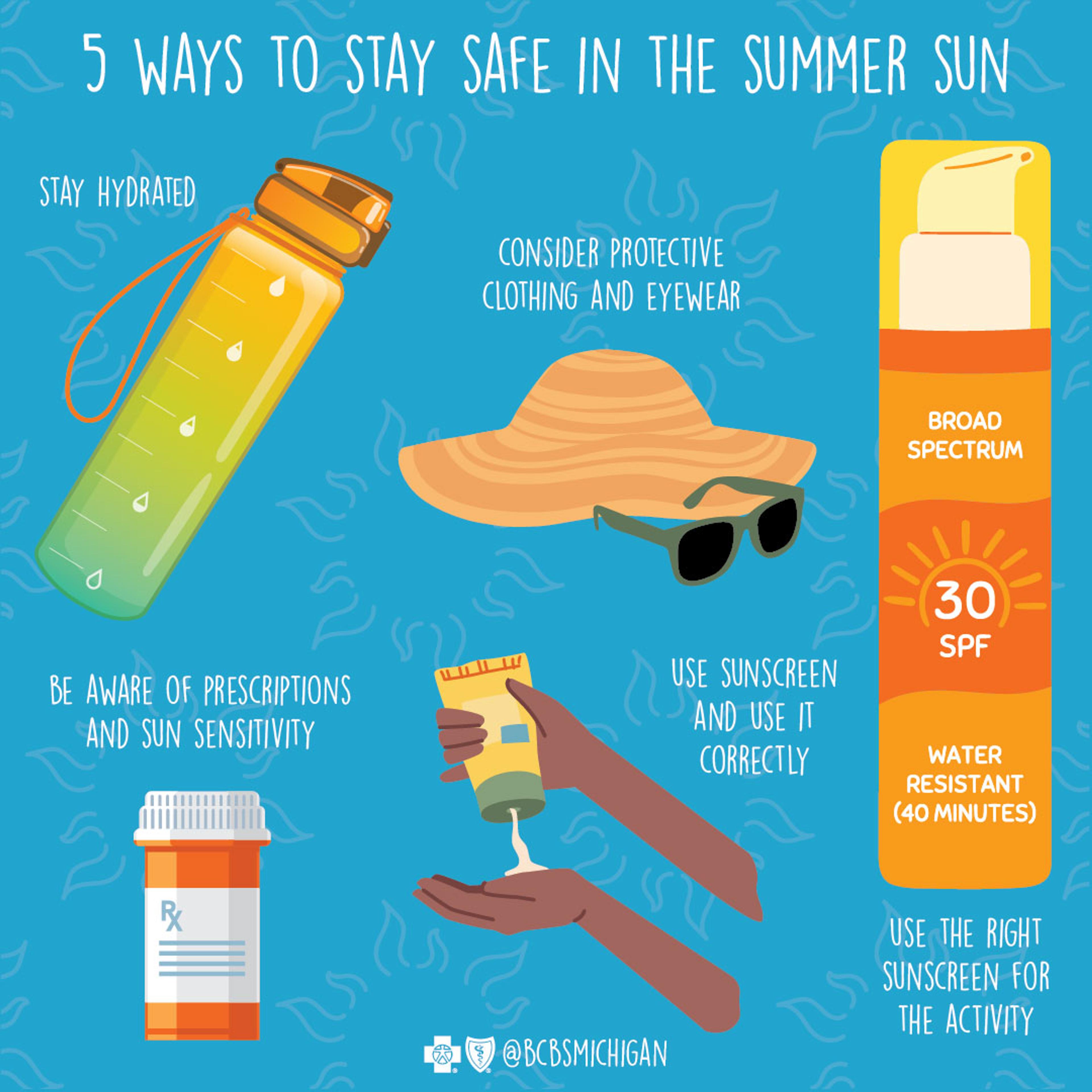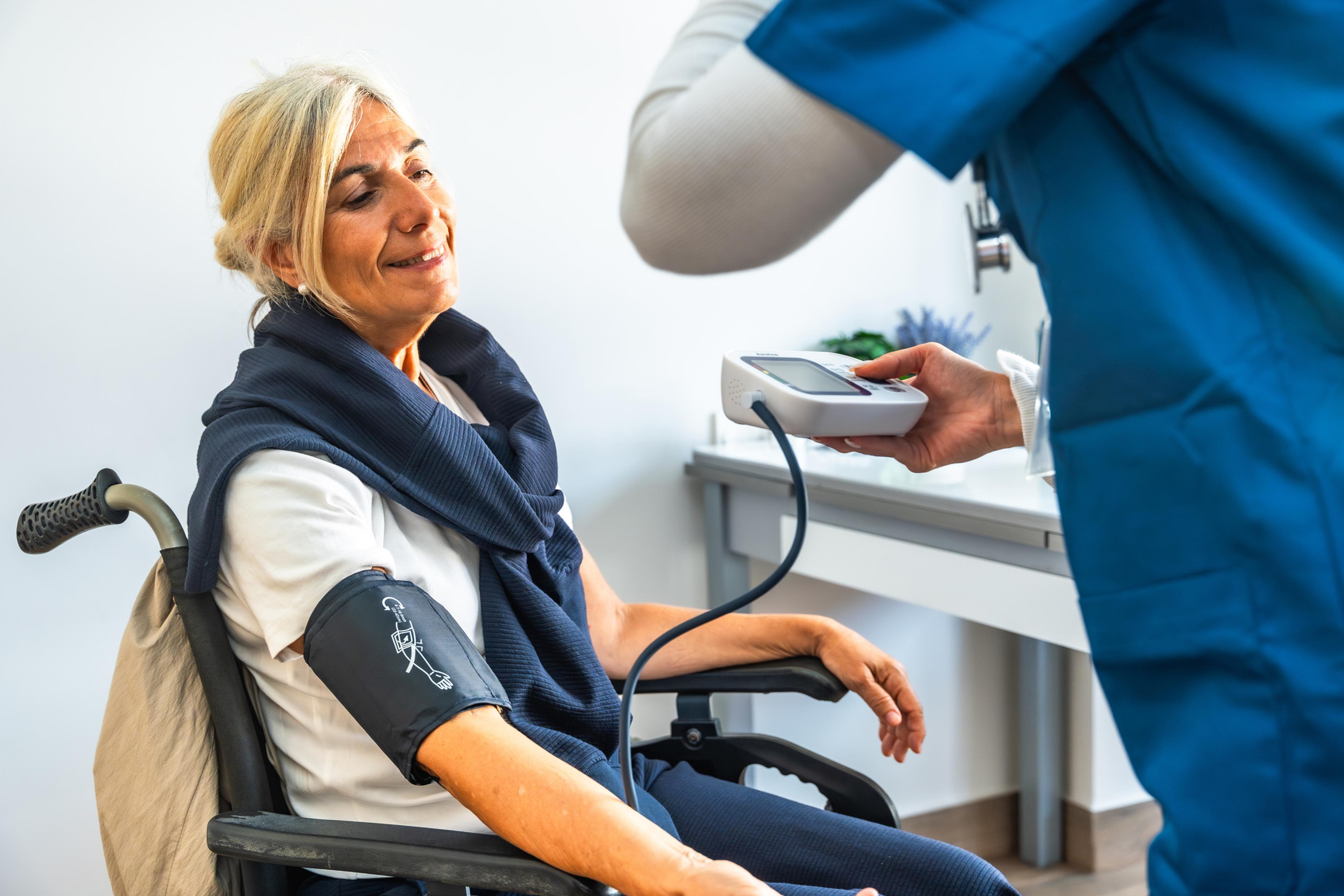5 Ways to Stay Safe in the Summer Sun

James Grant, M.D.
| 3 min read
James D. Grant, M.D., is executive vice president an...

After a long, gray winter and rainy spring, there’s nothing better than a bright sunny day in the summertime. There are many benefits to being out in the sun. Not only can it elevate one’s mood, it helps the body produce vitamin D – an essential component of healthy bones and teeth.
Yet, the sun also emits radiation which contains ultraviolet (UV) rays. Two types of radiation from the sun, ultraviolet A (UVA) and ultraviolet B (UVB), can damage skin and make it age faster. The damage from unprotected exposure to UVA and UVB rays is cumulative. Brief overexposure can cause sunburn, and over time, cumulative overexposure can cause eye damage, premature aging of the skin and many types of skin cancer.
The good news is that there are many ways people can protect themselves from harmful UV rays and enjoy being outdoors.

Keep in mind these five strategies to stay safe in the sun.
- Use sunscreen and use it correctly. Sunscreen contains ingredients that form a protective layer between skin and harmful UV rays. These ingredients physically block and reflect UV rays away from skin and absorb UV rays before they reach the skin. Most sunscreens have ingredients that both block and absorb the sun’s rays.
It’s important to use sunscreen with broad-spectrum protection to guard against both UVA and UVB rays. Sunscreen also should be applied to exposed skin 30 minutes before going outdoors and re-applied every two hours.
For daily use, use sunscreen with a sun protection factor (SPF) of 15. When spending longer periods of time outdoors, use a sunscreen with SPF 30 or higher. - Use the right sunscreen for the activity. No sunscreen is completely waterproof, but for swimming or other water activities, use a water-resistant or very water-resistant sunscreen. Water-resistant sunscreen provides protection for up to 40 minutes in the water, while very water-resistant is effective for up to 80 minutes in the water.
Both lotion and spray forms work well when applied correctly. However, it’s easy to miss spots with spray sunscreen. Be thorough when applying it. Lotion sunscreen should be thoroughly rubbed in. - Consider protective clothing and eyewear. Another way to protect skin against UV rays is to keep skin covered. Clothing that is loose-fitting and has bright or dark colored material that is opaque (cannot see through it) offers better UV protection. Some clothing is labeled with Ultraviolet Protection Factor (UPF). Remember hats and shoes. And don’t forget sunglasses with UV-protection lenses.
- Stay hydrated. When it’s sunny and people are outside and physically active, they sweat! Replenish those fluids by drinking water. Drink water before feeling thirsty and drink more water every 30 to 60 minutes while outside.
- Be aware of prescriptions and sun sensitivity. Some medications cause the body to become more sensitive to the sun or heat, resulting in rash, hives, severe sunburn, or dehydration. Individuals should talk to their health care provider to see if their medications require additional precautions for sun safety.
James D. Grant, M.D., is senior vice president and chief medical officer at Blue Cross Blue Shield of Michigan.





